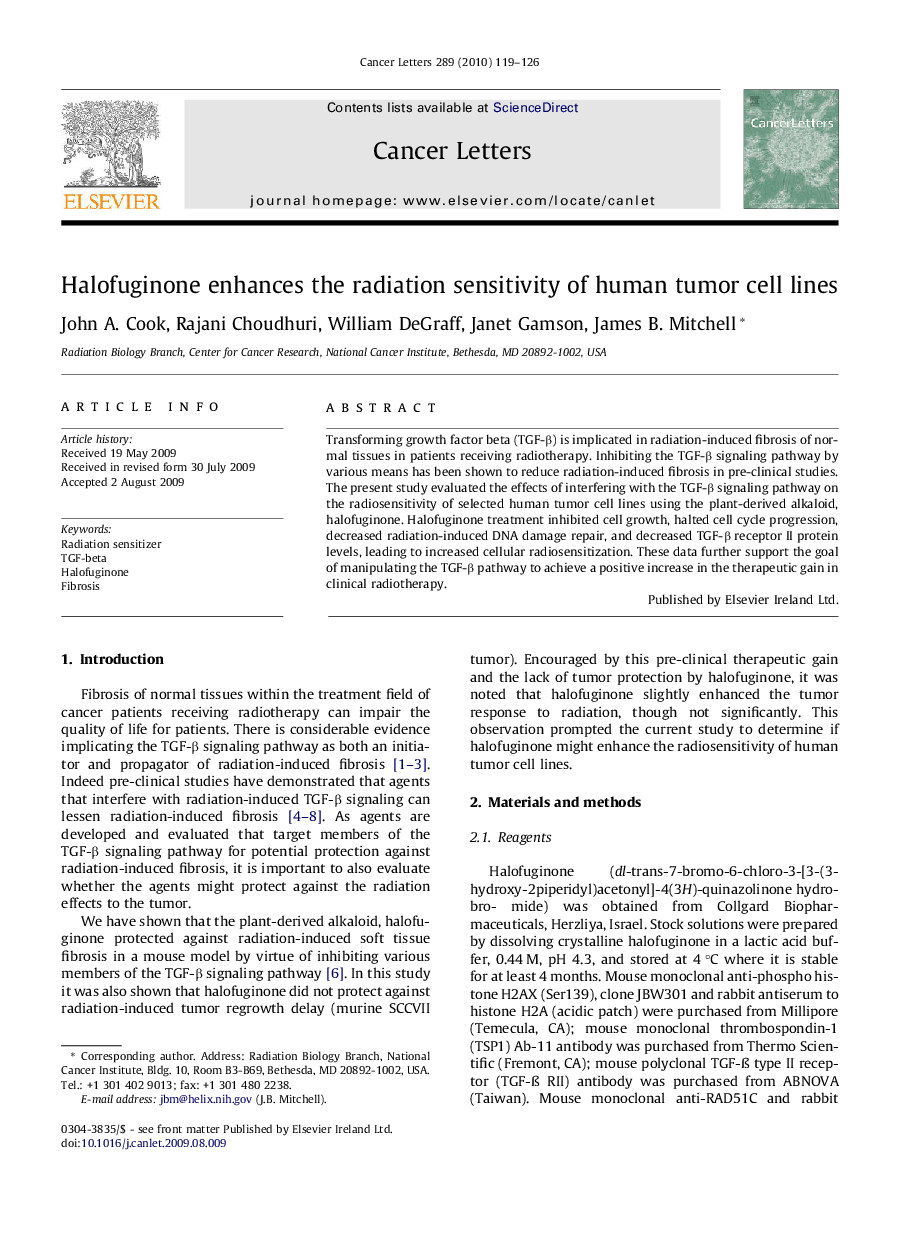| Article ID | Journal | Published Year | Pages | File Type |
|---|---|---|---|---|
| 2114138 | Cancer Letters | 2010 | 8 Pages |
Transforming growth factor beta (TGF-β) is implicated in radiation-induced fibrosis of normal tissues in patients receiving radiotherapy. Inhibiting the TGF-β signaling pathway by various means has been shown to reduce radiation-induced fibrosis in pre-clinical studies. The present study evaluated the effects of interfering with the TGF-β signaling pathway on the radiosensitivity of selected human tumor cell lines using the plant-derived alkaloid, halofuginone. Halofuginone treatment inhibited cell growth, halted cell cycle progression, decreased radiation-induced DNA damage repair, and decreased TGF-β receptor II protein levels, leading to increased cellular radiosensitization. These data further support the goal of manipulating the TGF-β pathway to achieve a positive increase in the therapeutic gain in clinical radiotherapy.
